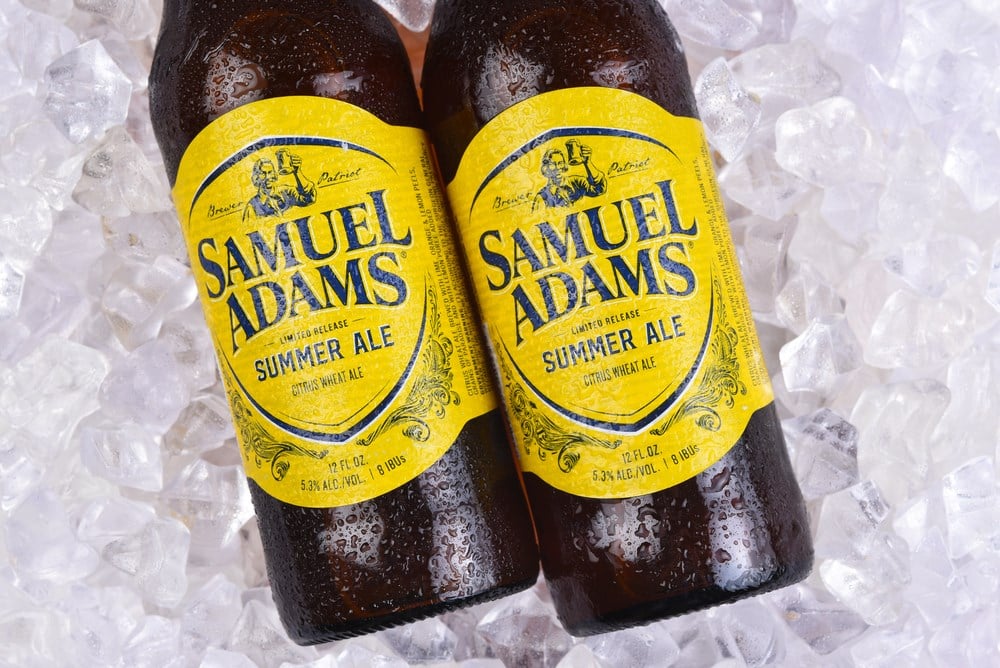
For The Boston Beer Company, Inc. (NYSE: SAM) shareholders, the last two years have been far from a Boston Tea Party. Maybe it relates to the Bruins, Celtics, Patriots and Red Sox teams’ collective failure to bring home a sports championship. More likely, it's because the brewer has missed Wall Street profit estimates in seven of the last eight quarters.
Last time at bat, Boston Beer struck out in embarrassing fashion. Higher inventory obsolescence and brewery processing costs drove a $0.73 share net loss that was more than double what analysts expected. The stock has since gone flat, while the S&P 500 has hit 2023 highs.
Boston Beer isn’t the only one experiencing margin pressures. Other brewers are being forced to juggle cost inflation, inventory build-ups and pricing. But with consumers trading down to cheaper alcoholic beverages, craft brewers like Boston Beer that depend heavily on the Sam Adams and Dogfish Head brands are getting hit harder.
SAM shares are down about 3% year-to-date. The Dow Jones U.S. Brewers Index is up 20%.
Of course, recent beer stock returns largely relate to the backlash from Bud Light’s support of transgender influencer Dylan Mulvaney. While Molson Coors Brewing and Ambev S.A. are winners, Boston Beer’s lack of strong value brands has caused it to lose out.
But with the Bud Light fiasco likely to fade in the second half of the year, investors’ attention should shift back to industry fundamentals by 2024. This could make Boston Beer an interesting ‘comeback brewer of the year candidate.
#1 - Seltzer Has Been Canned
Boston Beer’s recent financial woes have much to do with a slowdown in hard seltzer demand. With the novelty of the beverage wearing off, the company has turned to Truly Vodka Soda in an attempt to refresh the brand. Partly a marketing trick, a product reformulation, plus the introduction of new flavors and real fruit juice just could work. The timing alongside a ramp in summer concerts and other activities could prove particularly effective.
While the jury is out on the Truly reboot, the company’s Twisted Tea is a clear winner. As a result of effective media campaigns, including Super Bowl promos, Twisted Tea sales jumped 34% in the first quarter. And with further investments being made, America’s best-selling hard iced tea could remain a growth driver well into 2024. In time for 4th of July celebrations, the brand recently launched three Rocket Pop flavors.
Despite getting crushed by the seltzer downturn, Boston Beer’s track record of innovation (including Angry Orchard hard cider) makes it hard to dismiss. And with the category likely to be less of a drag on future financial performances, the outlook is improving. Analysts are anticipating 50% EPS growth in 2024, which would mark the highest level of profitability since 2021, when the stock price soared to a record $1,350.
#2 - Institutional Money Is Pouring In
Even with a profit recovery ahead, Boston Beer shares are trading at 31x next year’s EPS estimate. Molson Coors, Ambev and Anheuser-Busch have 2024 P/E ratios that are roughly half that.
Hedge funds, however, seem to feel the premium beverage portfolio justifies SAM’s premium valuation. As the stock has fallen off the cliff over the last two years, the so-called smart money investors have been loading up. Dating back to the fourth quarter of 2021, hedge fund managers have increased their Boston Beer holdings for six consecutive quarters. In the first quarter of 2023, Southeastern Asset Management initiated a $35.7 million position.
Besides banking on a craft beer comeback and non-beer innovation, fundamentally-focused hedge funds are likely attracted to Boston Beer’s financial strength. Despite the recent losses, the balance sheet is in good shape, with $122.6 million in cash and no debt. An active buyback program with $62.8 million remaining also bodes well for downside stock price protection.
#3 - Technicals Are Ice Cold
Boston Beer’s technical picture looks good too. With $1,000 gashed from the share price over the last couple of years, several indicators are naturally at depressed levels.
The daily 31 relative strength indicator (RSI) reading is teetering on oversold territory. Over the last 12 months, this level has repeatedly served as the launchpad for a near-term bounce. If the stock can hang on to long-term support around $318, the upside-to-downside tradeoff looks favorable.
The company’s second-quarter report on July 27th could be an important step in the recovery. The Street is projecting a 2% sales decline. But given the strength in Twisted Tea and multiple product rollouts during the period, SAM’s top line could get ‘twisted’ to growth.
